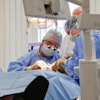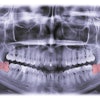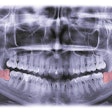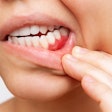Dear DrBicuspid Member,
When it comes to personality traits, dentists differ from the rest of the population. A study published in the Journal of Dentistry highlighted significant differences in willfulness, spontaneity, reservation, ambition, optimism, and conscientiousness in dentists compared to the general population. Our top story of the week breaks down the findings.
In another big story this week, a survey shed light on the oral health habits of dental professionals versus patients. Professionals and patients revealed how often they brushed their teeth, what they find stressful about visiting the dentist, and how much they spend on oral care. See how your habits compare against those of your peers.
ADA antibiotic guidelines: what you need to know
Guidelines released by the ADA in 2019 on antibiotic use for tooth pain and intraoral swelling continue to change how dentistry prescribes antibiotics, according to a session at the July 12 Department of Public Health's Illinois Summit on Antimicrobial Stewardship.
If you need a refresher on the guidelines, Melissa Busch's summary of the session covers the basics, including prescribing practices for immunocompetent patients and immediate and nonimmediate treatment, as well as the best practices for antibiotic stewardship.
Detecting developmental disorders in kids
Dental professionals are trained to detect diseases of the oral cavity, which in turn may help them identify children with developmental disorders. In a study from Japan, dentists who used a mouth rinsing function test detected early signs of developmental disorders in 5-year-old children. The professionals could then encourage parents to have their children visit a specialist for further testing and diagnosis.
5 ways the oral microbiome influences health
Last but not least, the oral microbiome is one of the largest microbial communities in the body, and it can have a tremendous impact on whole-body health. In a fun listicle, Brian Mauer outlines five ways that oral bacteria impact systemic health, including brain health, heart health, and one's risk of developing cancer.



















